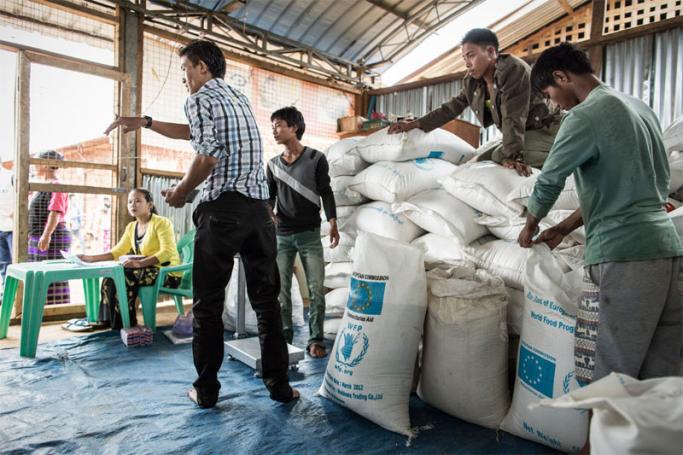The UN World Food Programme (WFP) has extended its current operation in Myanmar by two years to ensure that food assistance continues to reach the most vulnerable during the current transition of political power, the organisation announced in a statement on 2 December.
With the newly elected government due to be formed and come into power in early 2016, WFP operations have now been extended until the end of 2017. Previously, WFP was due to end its current programme cycle at the end of this year.
Dom Scalpelli, WFP Country Director and Resident Representative, says that WFP will continue to focus on reducing poverty, food insecurity and undernutrition. “Myanmar has made significant progress in the past few years,” he said. “But there is still much work to be done. It is important that we continue to assist the people of Myanmar during this critical and protracted period of transition.”
More than 13 million people, or 26 percent of Myanmar’s population, still live below the poverty line and more than 35 percent of children in Myanmar show signs of stunted growth caused by chronic malnutrition. In 2015, floods and landslides left more than 440,000 people in need of food assistance, and 2011/2012 violence in Kachin, Shan and Rakhine States have displaced more than 172,000 people who also continue to need food assistance. The new extended operation will provide food and cash assistance to 2.9 million food- insecure people.
WFP’s revised country strategy will see it help internally displaced persons return to their places of origin or resettle in areas with better livelihood opportunities. WFP will also provide more cash instead of food in the coming two years, especially in areas with functioning markets, as well as continuing support for flood-affected people and other vulnerable groups. At the same time, the national school feeding programme, along with stunting and wasting prevention programmes will be expanded.
“WFP’s engagement in Myanmar must be now driven by the overarching goal of assisting the country achieve zero hunger by 2030,” said Mr Scalpelli.
You are viewing the old site.
Please update your bookmark to https://eng.mizzima.com.
Mizzima Weekly Magazine Issue...
14 December 2023
Spring Revolution Daily News f...
13 December 2023
New UK Burma sanctions welcome...
13 December 2023
Spring Revolution Daily News f...
12 December 2023
Spring Revolution Daily News f...
11 December 2023
Spring Revolution Daily News f...
08 December 2023
Spring Revolution Daily News f...
07 December 2023
Diaspora journalists increasin...
07 December 2023
If the UEC and government ban campaign rallies we will stop, says USDP candidate












